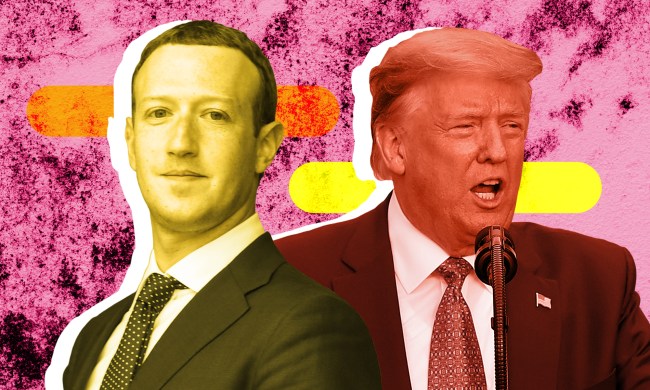Ahead of the 2020 election, Facebook announced changes to its ad policies that will require new disclosures for political ads that appear on the site and Instagram.
Facebook described these changes in a blog post published on Wednesday, August 28, saying that they will add “confirmed organization” disclaimers to ads beginning mid-September. Advertisers will have to add additional information to verify their legitimacy.
Advertisers that run political or social issues ads will have to show government credentials such as a tax-registered organization identification number or a government website domain. For other advertisers without these credentials, they will have to further their identity by providing a phone number, business email, or a mail-deliverable address.
Facebook said that if advertisers don’t comply with these new policies and provide the appropriate information by mid-October, the site will pause their ads.
“While our efforts to protect elections are ongoing and won’t be perfect, they will make it harder for advertisers to obscure who is behind ads and will provide greater transparency for people,” the post said.
Aside from its ad policies, Facebook also announced an update to its list of social issues. The issues will be listed out in 10 categories, rather than the current 20 subject areas Facebook has them laid out as. The site said they initially made the list “intentionally broad.”
“We’ll continue to capture a range of topics encompassed by the 10 referenced categories. For instance, in the Civil and Social Rights category, we will continue to proactively detect and review ads on topics like freedom of religion, LGBTQ rights and women’s rights,” Facebook said.
The social media giant received a lot of backlash for how ads and news articles were handled during the 2016 election. Investigations showed that as many as 126 million Americans saw political ads paid for by Russian organizations.
Wednesday’s announcement of updates is one of many moves the platform has taken to try to reduce political ad fraud. Since the 2016 election, Facebook has made it easier to see who paid for political ads and has partnered with the Atlantic Council to work against misinformation proactively.
In terms of debunking fake news, Facebook announced on August 20 that its hiring journalists for its new feature, the News Tab, with the hope to curb unreliable and biased news.
To combat phony accounts that push political agendas, Facebook continuously removes groups, accounts, and pages for “coordinated inauthentic behavior.” This year alone, Facebook has released more than 10 announcements about the removal of fake accounts from all over the world.


